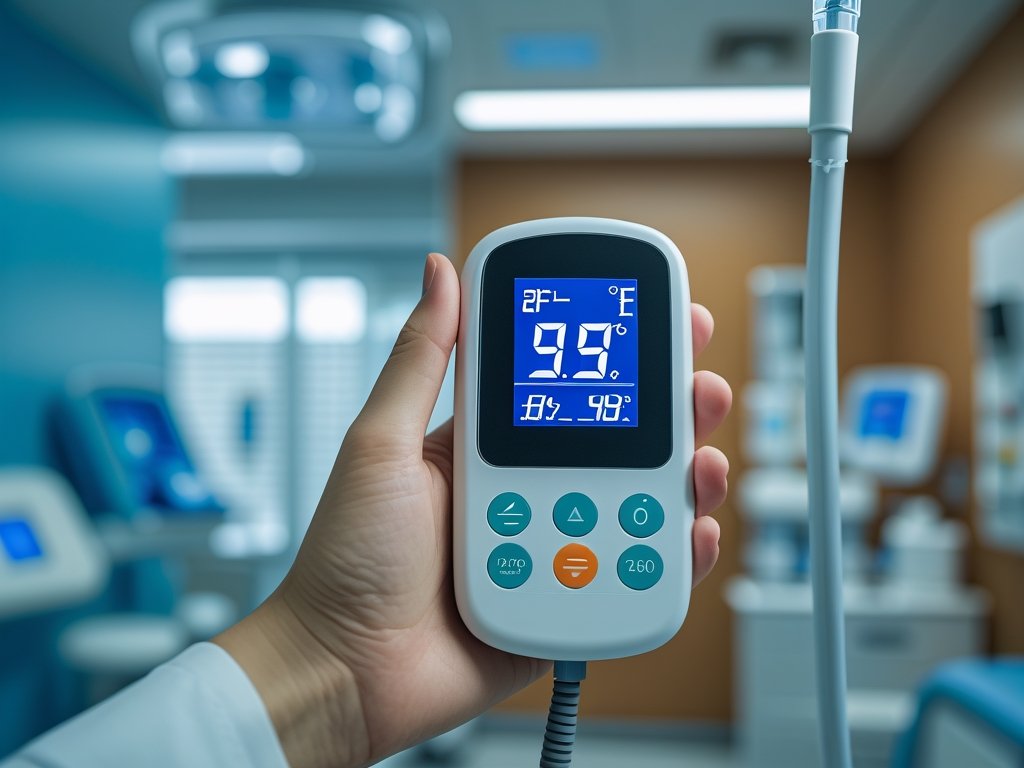Kidneys are often unsung heroes within our bodies, diligently filtering waste and maintaining fluid balance without us giving much thought to their tireless work. We typically only notice them when something goes wrong – a painful kidney stone, an infection, or perhaps a concerning diagnosis of chronic kidney disease. But proactive kidney health isn’t about reacting to problems; it’s about preventative care, and surprisingly, one often overlooked aspect of this is simply being aware of daily temperature fluctuations and how they impact our bodies. Many people don’t realize the subtle but significant ways in which environmental temperatures can strain these vital organs, potentially leading to conditions like kidney shock if not understood and mitigated.
This isn’t about avoiding hot or cold weather altogether; it’s about cultivating a mindful awareness of temperature’s influence on hydration levels, blood flow, and overall physiological stress. Kidney shock, while relatively uncommon, represents a serious medical emergency where the kidneys suddenly experience insufficient blood flow, causing rapid damage. It can be triggered by various factors including severe dehydration, significant blood loss, or – crucially for this discussion – prolonged exposure to extreme temperatures that disrupt the body’s ability to regulate itself effectively. Understanding this link and adopting simple daily habits can drastically reduce your risk and safeguard these essential organs.
The Temperature-Kidney Connection: A Deeper Look
The connection between temperature and kidney function isn’t immediately obvious, but it’s deeply rooted in how our bodies maintain homeostasis – that internal balance necessary for survival. When exposed to heat, our bodies prioritize cooling down. This primarily happens through sweating, which pulls fluids from the bloodstream. If fluid intake doesn’t keep pace with sweat loss, blood volume decreases, and the kidneys receive less blood flow. Conversely, in cold weather, the body constricts blood vessels – including those supplying the kidneys – to conserve core heat. This also reduces blood flow, potentially leading to stress on the renal system. It’s a delicate balancing act, and disruptions can quickly overwhelm the kidneys’ capacity.
This is particularly true for individuals with pre-existing kidney conditions or other health concerns like diabetes or heart disease, who may have reduced renal reserve. However, even healthy individuals are vulnerable if they don’t proactively manage their hydration and temperature exposure. The risk isn’t just about extreme weather events; seemingly mild temperature changes can accumulate over time, creating a chronic strain on the kidneys. Think of a consistently warm summer or a prolonged cold snap – these aren’t acute emergencies in themselves, but they create conditions where dehydration or reduced blood flow becomes more likely. To support kidney health proactively, consider incorporating daily nutritional awareness into your routine.
The implications extend beyond immediate kidney function. Chronic reductions in kidney blood flow can accelerate the progression of existing kidney disease and potentially contribute to long-term damage even in healthy individuals. Furthermore, temperature extremes can exacerbate other health issues that indirectly impact the kidneys, such as high blood pressure, which is a major risk factor for kidney disease. Therefore, daily temperature awareness isn’t merely about comfort; it’s an integral part of proactive kidney health management. Staying informed about your body’s needs and adopting preventative measures like those found in daily awareness practices can make a significant difference.
Hydration Strategies for Varying Temperatures
Maintaining adequate hydration is paramount, but the how changes with the weather. During hot weather, focusing on consistent fluid intake throughout the day is vital. Don’t wait until you feel thirsty – by then, you’re already mildly dehydrated. Aim for clear or pale yellow urine as an indicator of sufficient hydration. Electrolyte-rich beverages can also be beneficial to replace those lost through sweat, but avoid sugary drinks which can contribute to other health problems. A good rule of thumb is to increase your water intake by at least 16-32 ounces during periods of intense heat or physical activity.
In colder weather, the challenge isn’t necessarily about replacing fluids lost through sweating (though you still need to stay hydrated!), but rather counteracting the body’s tendency to conserve fluids and potentially become dehydrated due to reduced thirst sensation. Many people simply don’t feel as thirsty in cold weather, leading to insufficient intake. Warm beverages like herbal teas or warm water with lemon can encourage hydration without contributing to excessive sugar consumption. It’s also beneficial to understand how your daily habits impact kidney function; explore creating a daily rhythm that supports optimal kidney health.
Here are some practical steps you can take:
1. Carry a reusable water bottle and sip on it consistently throughout the day.
2. Set reminders on your phone to drink water, especially if you’re busy.
3. Incorporate hydrating foods into your diet like fruits (watermelon, oranges) and vegetables (cucumbers, celery).
4. Pay attention to urine color – a darker yellow indicates dehydration.
Recognizing the Early Warning Signs of Kidney Stress
Kidney shock develops rapidly, but it’s often preceded by subtle warning signs that can be recognized and addressed before the situation escalates. These aren’t necessarily specific to kidney problems; they can mimic other conditions, which is why awareness is so important. Look out for decreased urine output – a noticeable reduction in how frequently you urinate or the amount of urine produced. Fatigue and weakness are also common early indicators, as the kidneys struggle to filter waste products effectively.
Other symptoms may include swelling in the ankles, feet, or around the eyes (edema), which can indicate fluid retention due to impaired kidney function. Nausea and vomiting can occur as toxins build up in the bloodstream. Importantly, these symptoms don’t always appear simultaneously. They might develop gradually over time, making it easy to dismiss them as simply being tired or having a minor illness. If you experience any combination of these symptoms, particularly after prolonged exposure to extreme temperatures, consult with a healthcare professional immediately. Early intervention is key to minimizing kidney damage and improving outcomes. Consider adopting daily activities that reduce stress on your kidneys.
Protective Measures Beyond Hydration
While hydration is the cornerstone of temperature-related kidney protection, it’s not the only factor. Clothing plays a crucial role in regulating body temperature. In hot weather, wear loose-fitting, light-colored clothing made from breathable fabrics like cotton or linen to allow for better ventilation and sweat evaporation. Avoid dark colors which absorb heat. In cold weather, dress in layers to trap warm air and protect against the elements. Pay particular attention to keeping your core warm.
Furthermore, be mindful of your activity levels. Reduce strenuous physical exertion during peak temperature hours – both hot and cold. If you must be active outdoors, take frequent breaks in shaded or climate-controlled environments. Finally, consider the impact of underlying health conditions. Individuals with diabetes, heart disease, or pre-existing kidney problems should discuss specific preventative measures with their healthcare provider to tailor a plan that addresses their individual needs and risk factors. Proactive management is always preferable to reactive treatment. To further support your overall well-being, explore daily mindfulness techniques.
Disclaimer: This article provides general information about temperature awareness and its potential impact on kidney health. It is not intended as medical advice, diagnosis, or treatment. Always consult with a qualified healthcare professional for any health concerns or before making any decisions related to your health or treatment. Remember that choosing the right snacks can also contribute to overall kidney health.





















